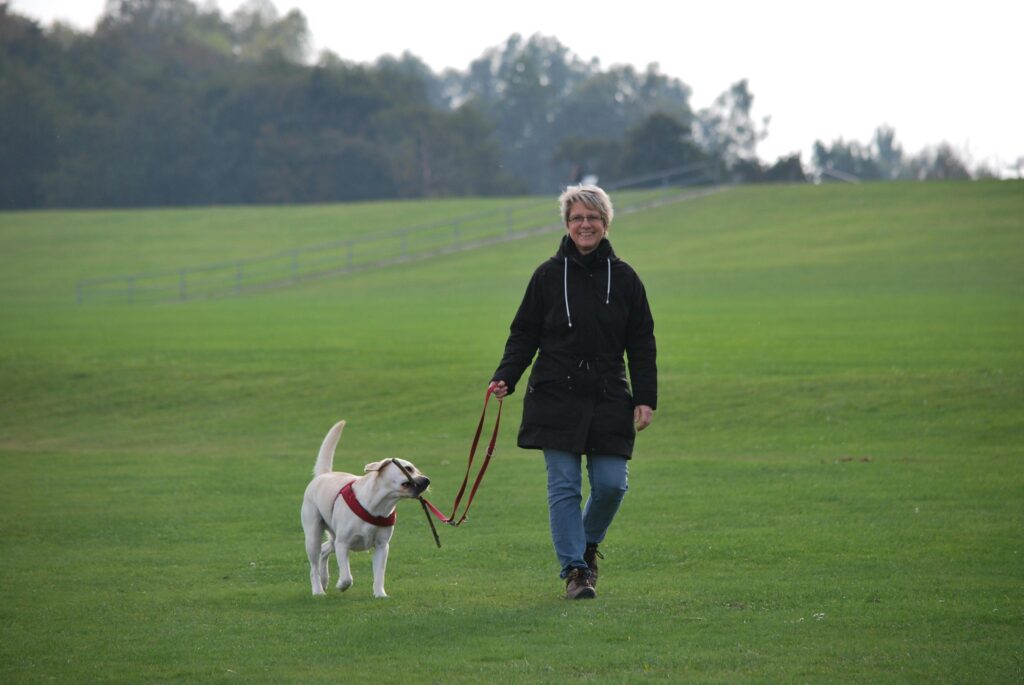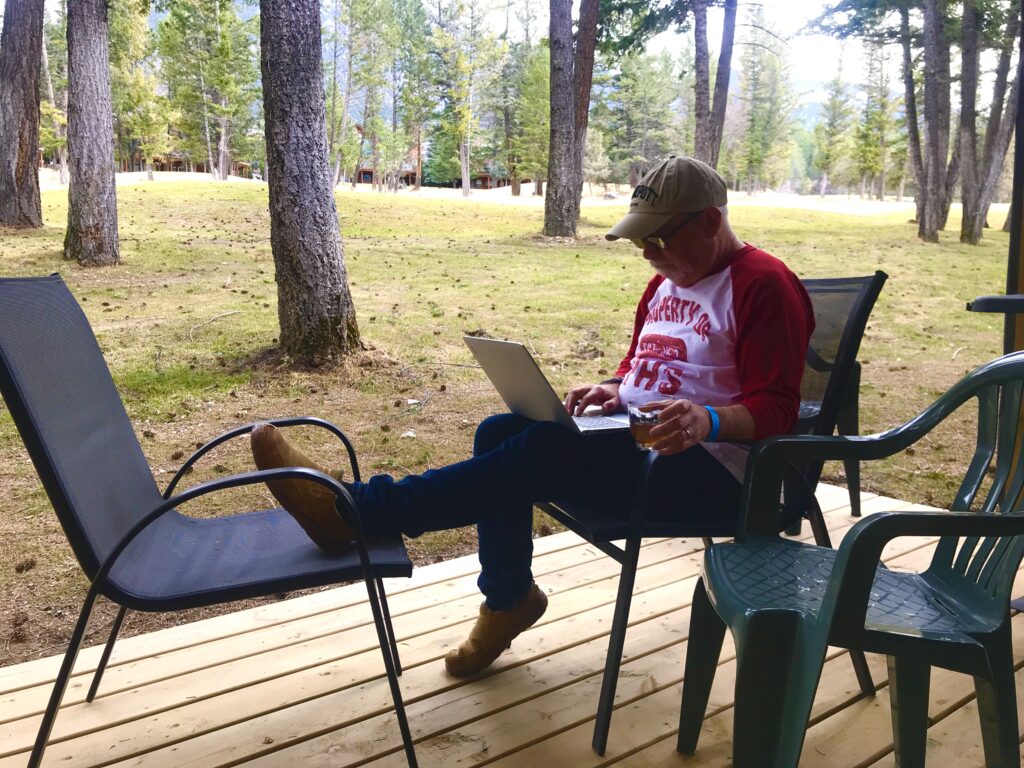
Thinking about retirement? It’s exciting but also a bit nerve-wracking, right? After decades of work, stepping into retirement is like writing a new chapter of your life. But how do you make sure it’s the page-turner you’ve dreamed of? In this article, I’ll go over 10 game-changing steps to make your transition to retirement smooth and stress-free. Whether you’re worried about money, time, or just figuring out what comes next, I’ve got you covered. Let’s dive in!
Table of Contents
What Does Transition to Retirement Mean?
Transitioning to retirement isn’t just about quitting your job and hitting the beach. It’s a process of shifting from the structured work life you’ve known for years to a freer, more self-guided lifestyle. This can involve changes in finances, daily routines, social interactions, and even your sense of purpose. So why does this matter? Because the better you plan for it, the happier and more fulfilling your retirement will be. Think of it like a road trip: planning the route makes the journey more enjoyable.
Why Planning Your Transition Matters
Retirement planning isn’t just about having enough money saved. While finances are certainly important, there’s a lot more to consider. How will you spend your days? What hobbies will you pursue? What’s your plan for staying healthy and connected to loved ones? Without a roadmap, retirement can feel like an endless weekend—and not in a good way. Studies show that people who prepare for retirement feel more confident and experience far less stress. So, take the time to prepare—it’s an investment in your happiness and well-being.
11 Steps for a Stress-Free Transition to Retirement
1. Set Clear Goals

What does retirement mean to you? Travel? Volunteering? Write it down. What do you want your retirement to look like? This might sound simple, but many people struggle with defining their vision. Take some time to reflect on what truly matters to you. Do you dream of traveling the world, spending more time with family, or mastering a new skill? Maybe you’re considering starting up your own business. And maybe it’s a combination of all these. Write your goals down, as they’ll serve as your roadmap to transition to retirement.
Think of goals as a lighthouse—they guide your actions and decisions. If travel is a priority, you might allocate more of your savings toward vacations. Maybe family time is essential, you might consider relocating closer to loved ones. If pursuing a part time business is a goal, you may think about setting aside time to learn some new skills. Clear goals not only provide focus but also help you stay motivated and enthusiastic about the next phase of life.
2. Assess Your Finances

Review your savings, pensions, and investments. You can start by meeting with your financial advisor. Money plays a huge role in retirement. Start by reviewing your financial situation. How much do you have in savings, pensions, or retirement accounts? Are your investments generating enough income? This is where a financial advisor can be invaluable—they’ll help you create a strategy that ensures your money lasts.
Don’t forget to account for inflation and unexpected expenses like healthcare or home repairs. It’s also wise to prepare a budget that aligns with your retirement lifestyle. Living within your means now will give you peace of mind later. Remember, financial security isn’t about being wealthy; it’s about feeling confident that you can sustain your lifestyle.
3. Create a Routine

Establish a bit of a daily schedule to keep your days purposeful. It’s easy to picture retirement as an endless vacation, but too much free time can feel overwhelming. Establishing a loose daily routine provides structure and purpose. Whether it’s morning coffee on the porch, a walk in the park, or reading after lunch, these small habits keep you grounded.
Think of it as designing your perfect day. Include activities that promote physical, mental, and emotional health. For example, start your day with exercise, dedicate afternoons to hobbies, and reserve evenings for family or relaxation. A routine doesn’t mean rigidity; it’s about balancing freedom with meaningful structure.
4. Explore Hobbies

Now’s the time to learn a new language, gardening, or even pickleball! Retirement is the perfect time to dive into hobbies. Always wanted to paint? Go for it. Interested in learning a musical instrument? Now’s your chance. Exploring hobbies not only keeps you busy but also nurtures your creativity and provides a sense of accomplishment.
Hobbies also connect you to others with similar interests. Join local classes or online communities where you can share your passion and build friendships. Plus, trying new things keeps your brain sharp and prevents monotony. The possibilities are endless, so don’t be afraid to step out of your comfort zone.
5. Downsize Strategically

Simplify your living situation if needed—it’s freeing! Simplifying your living situation can be a game-changer. Consider whether your current home fits your new lifestyle. Do you still need all that space, or would a smaller place be more practical? Downsizing doesn’t mean giving up comfort—it’s about creating a space that works for you.
Selling a larger home and moving to a smaller one can free up funds for travel or other goals. Plus, it reduces maintenance responsibilities, giving you more time to enjoy retirement. Take time to declutter and keep only what truly adds value to your life. Less stuff often means less stress.
Maybe you’re considering relocating further afield. More and more folks are moving overseas to find a slower pace, or a lower cost of living. Moving to another country can be stressful, but with the right planning and research, it can also be the ultimate retirement adventure!
6. Strengthen Relationships

Spend time with loved ones, and expand your social circle. Retirement can sometimes feel isolating, so staying connected is essential. Strengthen connections with family and friends by spending quality time together. Whether it’s weekly dinners, shared hobbies, or family vacations, these moments create memories that last a lifetime.
Don’t stop there—expand your social circle. Join clubs, volunteer, or attend community events. Meeting new people keeps life exciting and enriches your experiences. Strong relationships not only boost happiness but also provide emotional support during this transitional phase.
7. Stay Healthy

Keep up with exercise, nutrition, and regular check-ups. Your health is your wealth, especially in retirement. Focus on regular exercise, even if it’s just a daily walk or yoga session. Staying active reduces the risk of chronic diseases and boosts your mood. Pair this with a balanced diet rich in fruits, vegetables, and lean proteins to maintain energy and vitality.
Don’t overlook mental health. Activities like meditation, journaling, or even therapy can help manage stress and maintain a positive outlook. I discovered the benefits of meditation a few years ago, and it’s become a welcome habit. For me, just 15-20 minutes of meditation in the mornings primes me for the rest of the day. I’m less stressed, and I have more energy for the day ahead.
Schedule regular check-ups and screenings to catch potential health issues early. A healthy body and mind will make your retirement years far more enjoyable.
8. Consider Part-Time Work

Not ready to completely stop working? Many retirees find part-time jobs or freelance work fulfilling. It’s a way to stay active, meet new people, and even earn extra income. The key is choosing work that aligns with your interests and schedule. Maybe you’ve had an idea for starting your own business, but never had the time. Retirement can be a great opportunity to make it happen. With your past experiences to guide you, a rewarding and fulfilling side business could go a long way to providing significant extra income.
For example, if you love teaching, you could tutor students or teach online classes. You could create your own online course, based on your career knowledge, or a passion you’ve always had. If you enjoy crafting or woodworking, consider selling handmade items on platforms like Etsy. Or sell them from your own website.
9. Transition to Retirement by Building Something You Love

Building something you love, and creating a recurring, passive income stream can go a long way to providing you with the money to really crank up your retirement lifestyle. With your own online business, you can work as much or as little as you want, and still be able to travel or pursue your other hobbies and interests.
Starting my own online business was a game-changer for me. I knew that, just making the transition to retirement from my job wasn’t going to be enough. My pension and investments just weren’t going to provide me with the income I needed to live the life I wanted. So I decided that, rather than getting a second, part-time job, I’d look into starting my own business online.
I liked the idea of setting something up that I could automate, that wouldn’t require me to be there 8 hours a day. I wanted the freedom to work when I wanted, and still earn a decent income. Investing in my retirement future by learning how to build an online business was really a no-brainer for me.
If this sounds like something you’d like to learn more about, click on the link below and enter your email address. I’ll send you a free video series that shows you how you can set up your own online business, and build something you love.
10. Plan for Healthcare
Research Medicare or other healthcare options. Healthcare planning is a cornerstone of a successful retirement. Start by understanding your options, whether it’s Medicare, private insurance, or a combination. Factor in potential long-term care needs, as these can be expensive. And if you’re planning to live overseas, check out what your chosen country has for expat healthcare programs. Lots of countries have affordable and high quality health plans for seniors, even if you come from another country.
Don’t wait until a health crisis to figure this out. Research and enroll in the right plans ahead of time. Also, consider setting aside an emergency fund specifically for healthcare expenses. Being proactive will save you stress and ensure you receive the care you need when you need it.
11. Embrace Change
Accept that retirement is a transition—it’s okay to feel unsure at first. Retirement is a big adjustment, and it’s okay to feel uncertain at first. The key is to embrace change with an open mind. View this phase as a new adventure rather than an end. Let go of rigid expectations and explore what makes you happy.
Remember, retirement is a journey, not a destination. You may need to tweak your plans along the way, and that’s perfectly fine. Celebrate small wins, stay curious, and trust that you’re capable of creating a fulfilling life after work. This is your time—make the most of it!
Common Mistakes When Making The Transition to Retirement
Retirement is an exciting chapter, but it’s also filled with potential pitfalls. Avoiding these common mistakes can help you enjoy a smoother and more rewarding transition to retirement. Here’s a deeper dive into the missteps many retirees face and how to sidestep them.
Not Saving Enough
Running out of money can turn a dream into a nightmare. When making the transition to retirement, one of the biggest challenges retirees face is running out of money. Many underestimate how much they’ll need to maintain their lifestyle, especially as life expectancy increases. Retirement isn’t a sprint; it’s a marathon, and financial resources may need to stretch over several decades.
The cost of living, inflation, and unexpected expenses like medical emergencies can quickly deplete savings. To avoid this, it’s essential to calculate your retirement needs realistically. Use tools like retirement calculators or work with a financial advisor to plan for a sustainable budget. And remember, it’s never too late to adjust your savings habits. Cutting non-essential expenses now can lead to significant benefits later.
For a more in-depth look at this issue, check out my article, Can You Afford to Retire? The Harsh Reality Many Older Adults Face.
Ignoring Health Planning
Skipping healthcare planning is a big risk. Your health is one of the most significant factors in retirement satisfaction. Many people overlook the need for a comprehensive health plan, assuming that Medicare or basic insurance will cover everything. Unfortunately, long-term care, dental, and vision services are often excluded from standard plans, leading to unexpected and hefty out-of-pocket costs.
To avoid this, check out supplemental insurance options and create a dedicated healthcare fund. Staying proactive with regular check-ups and a healthy lifestyle can also reduce long-term medical costs. Remember, investing in your health today is like adding to your retirement savings—it pays dividends in quality of life down the road.
Rushing Into Decisions
Avoid drastic moves like selling your home without careful thought. In the excitement of retiring, some people make hasty decisions that they later regret. For instance, selling a family home too quickly or relocating to a new city without researching its amenities and community. These rash moves can lead to financial loss or emotional dissatisfaction.
Take your time to evaluate major decisions. Test the waters first—if you’re considering relocating, rent in the area before buying. If downsizing, think carefully about what possessions you’ll need and cherish. Thoughtful planning ensures that your choices align with your long-term goals and values.
Neglecting Social Life
Isolation can creep in if you don’t stay connected. One unexpected challenge of retirement is social isolation. Without the daily interactions of a workplace, it’s easy to lose touch with friends and colleagues. Over time, this can lead to feelings of loneliness, which can negatively impact mental and physical health.
Combat this by actively nurturing relationships and seeking new social opportunities. Join clubs, take classes, or volunteer in your community. Retirement is an excellent opportunity to expand your network and meet people who share your interests. Staying socially engaged isn’t just about having fun—it’s a vital part of your overall well-being.
Failing to Explore Interests
A lack of hobbies can make retirement feel dull. Be mindful of these and tackle them early on. Many retirees find themselves at a loss when their structured workdays suddenly disappear. Without hobbies or interests to fill the void, boredom and a lack of purpose can creep in, leading to dissatisfaction and even depression.
This is your chance to rediscover passions you may have set aside during your working years. Experiment with different activities—gardening, painting, writing, or learning a new skill. You might even find a new calling, like mentoring or starting a small business. Retirement is not about doing nothing; it’s about doing what you love.
Embracing Your New Lifestyle
Retirement is a chance to design the life you’ve always wanted. Want to travel the world? Start small—take a weekend trip to a nearby city. Curious about volunteering? Reach out to local organizations. Remember, retirement is not the end—it’s your new beginning. Stay open to change, and embrace opportunities that bring joy and growth. If something doesn’t work out, pivot. It’s your journey, so make it count.
Conclusion: Your Next Chapter Starts Today
A transition to retirement is like writing the next chapter of your life’s book. Sure, the blank page can feel intimidating, but it’s also full of possibilities. With the right mindset and preparation, this phase can be the most rewarding yet. Take the first step today, and you’ll thank yourself tomorrow. You’ve worked hard—now it’s time to enjoy the fruits of your labor. Your new adventure awaits!
FAQs About Making the Transition to Retirement
Q1: How much money do I need to retire?
The amount you need to retire depends on your lifestyle and financial goals. A common rule of thumb is to aim for 70–80% of your pre-retirement income annually. For example, if you earned $60,000 per year before retiring, you might need around $42,000–$48,000 per year in retirement.
However, this is just a guideline. Factors like healthcare costs, inflation, and travel plans can significantly impact your financial needs. And where you choose to live will also have a significant impact on your budget.
It’s wise to create a detailed retirement budget that accounts for fixed expenses (housing, utilities) and variable costs (leisure, dining out). Meeting with a financial advisor can provide clarity and help you align your savings with your goals.
Q2: When should I start planning for retirement?
The earlier, the better! Ideally, you should start planning for retirement as soon as you begin earning an income. Starting early allows you to take advantage of compound interest, which can significantly grow your savings over time.
If you’re already in your 40s or 50s and haven’t started, don’t panic—it’s never too late to transition to retirement. Begin by maximizing contributions to retirement accounts, like a 401(k) or IRA, and focus on cutting unnecessary expenses. Late starters might also consider delaying retirement by a few years to build up savings and increase Social Security benefits.
Q3: What if I get bored during retirement?
Retirement boredom is a common fear, but it’s also avoidable. The key is to stay engaged and curious. Explore hobbies you’ve always wanted to try, such as cooking, photography, or learning a new language. Volunteering can also provide a sense of purpose while giving back to your community.
Social engagement is another great antidote to boredom. Join clubs, participate in group activities, or connect with other retirees who share similar interests. Think of retirement as a blank canvas—you have the opportunity to create a vibrant and fulfilling life, filled with the things that bring you joy.
Q4: Can I work part-time after retiring?
Absolutely! Working part-time in retirement can be an excellent way to stay active, meet people, and supplement your income. Many retirees choose jobs that align with their passions, such as consulting, teaching, or working at a local business they enjoy.
Part-time work can also provide structure to your days, making the transition from full-time work less jarring. However, if you’re collecting Social Security, be mindful of income limits, as earning too much can temporarily reduce your benefits before you reach full retirement age.
Q5: How can I stay healthy in retirement?
Health is the cornerstone of a happy retirement. Staying healthy requires a holistic approach that includes physical activity, a nutritious diet, and mental well-being. Aim for at least 30 minutes of exercise most days—this could be walking, swimming, or yoga.
Nutrition is equally important. Focus on whole foods like fruits, vegetables, lean proteins, and whole grains. Hydration and portion control also play vital roles in maintaining good health.
Mental health should not be overlooked. Engage in activities that challenge your brain, such as puzzles, reading, or learning new skills. Practice mindfulness or meditation to manage stress. Social connections are also essential for mental and emotional well-being, so make time to interact with friends and family.
These FAQs highlight just a few of the concerns retirees face. By preparing thoughtfully and staying proactive, you can tackle challenges head-on and fully enjoy the freedom and opportunities that retirement offers.
Conclusion: Transition to Retirement with Your Own Online Business

Retirement is your time to shine—a chance to explore passions, build new routines, and create the life you’ve always dreamed of. As I mentioned above, one of the most exciting ways to elevate your retirement lifestyle is by starting your own online business. Whether you’re marketing other company’s products, offering consulting services, writing an e-book, teaching online courses, or even running a blog, building something you love can be both fulfilling and financially rewarding. And starting your own online business is a great way to transition to retirement!
An online business offers incredible flexibility, allowing you to work on your terms. You can scale your efforts up or down depending on your energy levels, travel plans, or other interests. Best of all, by focusing on creating a recurring, passive income stream—such as subscription services, digital product sales, or affiliate marketing—you can establish a steady flow of money that supports your retirement goals without tying you to a rigid schedule.
Imagine funding your dream vacations, spoiling your grandchildren, or investing in a new hobby—all while your business runs quietly in the background. The internet has made entrepreneurship accessible to everyone, and with a little effort and investment, it can become the financial engine that powers a vibrant, adventurous, and meaningful retirement. This is your opportunity to design not just a retirement, but a legacy.
Why not start today? If the idea of creating your own online business appeals to you, or even if you’re just a little curious, click on the button below and I’ll send you an amazing free video series. These short videos offer a clear explanation of how to start your own online journey.
